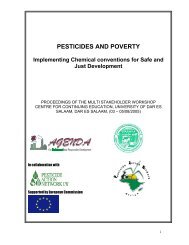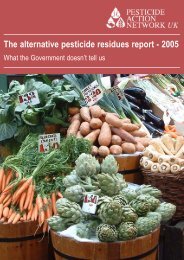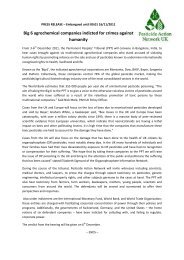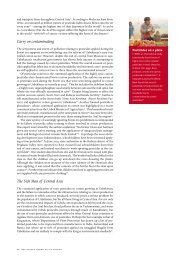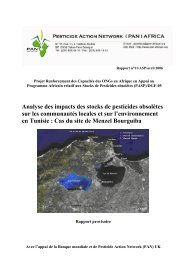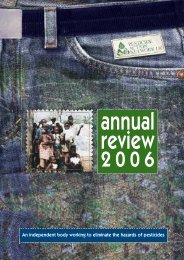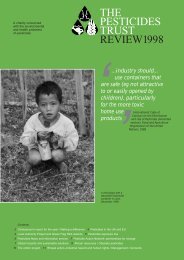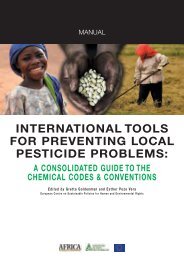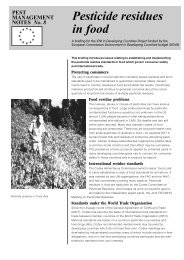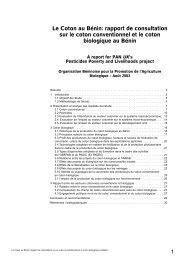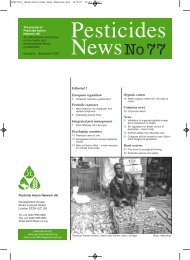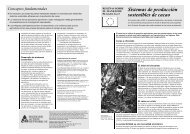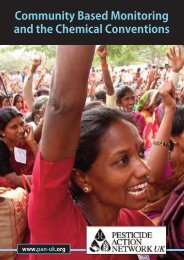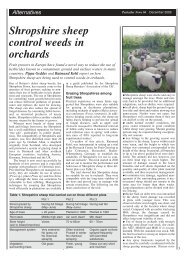Your Daily Poison - Pesticide Action Network UK
Your Daily Poison - Pesticide Action Network UK
Your Daily Poison - Pesticide Action Network UK
Create successful ePaper yourself
Turn your PDF publications into a flip-book with our unique Google optimized e-Paper software.
David Mason, ‘official laboratories including<br />
CSL develop and validate tests for the new<br />
pesticides using multiple residue methods if<br />
possible and that takes time. Now the<br />
companies have to submit, as part of the<br />
dossier for a new pesticide, an analytical<br />
method for use in multi-residue testing<br />
methods if possible. It is much easier to<br />
include a pesticide in the PRC programme if it<br />
is amenable to multi-residue testing.’<br />
The PRC has recently disclosed in a reply to<br />
PAN <strong>UK</strong> 25 some ‘illustrative costings’ of<br />
increasing the numbers of samples tested. To<br />
increase the sample size of only 45 food items<br />
(the number currently tested) to 300 would<br />
raise the cost of the monitoring programme<br />
more than three-fold to over £7 million. The<br />
PRC considered this in 2002, but has not yet<br />
increased the numbers of samples tested.<br />
Although the PRC ‘brand name annex’<br />
publications, which list the retailer and brand<br />
name for samples tested help to drive down<br />
residues by ‘naming and shaming’ food<br />
retailers, the vast majority of food residue<br />
results are inaccessible to the public.<br />
Supermarkets and food suppliers have their<br />
own self-funded testing programmes, results of<br />
which are only disclosed in a limited way. Put<br />
together these exceed the government’s<br />
programme in size.<br />
Conclusions<br />
These residue results reflect the fact that no<br />
progress has been made in reducing pesticide<br />
usage in the <strong>UK</strong>, and is urgently needed. The<br />
Food Standards Agency (FSA) has had a<br />
residue minimisation plan since 2002 which is<br />
limited to a few crops. Consumers continue to<br />
express their preference for food without<br />
residues, and multiple retailers are responding<br />
to this pressure. For example, the Co-op<br />
explicitly promotes a claim that it is ‘Leading<br />
the way on pesticide reduction’. Sales of<br />
organic products continue to grow much faster<br />
than sales in the non-organic grocery market<br />
and in 2004 reached £1.213 billion, an 11 per<br />
cent increase on the previous calendar year.<br />
Increasing sales of organically produced food<br />
suggest that future progress is possible.<br />
the second <strong>UK</strong> pesticide exposure report 11



